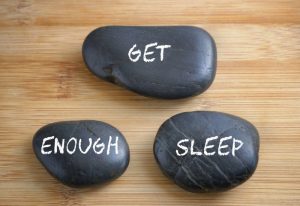With the COVID-19 pandemic sweeping the globe, mankind is united in a collective attempt to preserve our health and fight disease. Social distancing and hand-washing are both important parts of this effort. However, there are many “health hacks” that may help us to increase our immunity now that we need it the most. Several studies have shown that getting enough melatonin and keeping a regulated circadian rhythm may be an important part of fighting the disease. A healthy circadian rhythm boosts resistance to viruses and disease, helping you to fight coronaviruses and other illnesses as effectively as possible.
Staying Healthy in a Time of Illness
 With the world in the midst of a pandemic, many of us are modifying our lives to reduce the chances of catching or transmitting this deadly disease. We are wearing masks and gloves for even the most routine excursions. Although these measures are all important, it is also important to work on building a strong immune system that will be able to fight infectious illness should you be exposed.
With the world in the midst of a pandemic, many of us are modifying our lives to reduce the chances of catching or transmitting this deadly disease. We are wearing masks and gloves for even the most routine excursions. Although these measures are all important, it is also important to work on building a strong immune system that will be able to fight infectious illness should you be exposed.
A functioning circadian rhythm is essential for maintaining a strong immune response to viruses such as the novel coronavirus. However, many modern people do not have a lifestyle that allows them to maintain regular sleep-wake cycles. This is unfortunate at a time when an infectious disease is claiming a growing number of lives around us.
How a Healthy Circadian Rhythm Boosts Resistance to Viruses
Sleep is one of the most important factors in your whole-body health, including immune response. This is partly due to the interplay between melatonin and the immune system.
When we face an infection, it is crucial for our immune system to put forth a reaction that is neither too weak nor too strong. When our immune response is weak, we may not fight off the microbial invader as effectively. If the immune response is too strong, we may damage our own tissues, a response seen in many of the deadly cases of COVID-19.
Melatonin acts as a powerful immune modulator. Not only does it help to strengthen the immune system, but it also helps to decrease the inflammatory effects of our immune cells. Thus, it helps our immune system to strike just the right balance in effectively fighting bacteria and viruses.
Without a healthy circadian rhythm, there is a higher chance that our bodies will either over-react or under-react to invading viruses. Thus, it is more crucial than ever for us to get the sleep that we need.
Sleep and Immunity
Your sleep-wake cycles affect your immune system, but the reverse is true as well. The immune response can affect sleep in a variety of ways. If you have ever slept too much or been unable to sleep while ill, you have probably noticed this phenomenon.
We now know that this is due to interactions between immune molecules and the circadian rhythm. Although it is well-known that your circadian rhythm can affect your immunity, it is less well-known that the opposite is true. Immune cells actually interact with cells to create a greater need for slow-wave sleep, the phase in which we get the most rest. However, the discomforts of illness often keep us from maintaining regular sleep-wake habits.
When you are not sleeping well, you are more likely to develop an illness. When you are ill, you are less likely to mount a coordinated and effective immune response. Thus, many people with an illness such as COVID-19 can start on a negative downward spiral with grave health consequences.
Are You Getting the Sleep You Need to Fight a Virus?

There are several ways to improve your circadian rhythm and get your sleep cycles back on track. Consider the following tips:
- Go to sleep and wake at roughly the same times every day, even on weekends and days off.
- Plan your meals so you eat at the same times every day.
- Keep your bedroom for sleep and sex only. No laptops, work or arguing allowed!
- Reduce stress levels in the evening with meditation or yoga.
- Consider taking a melatonin supplement in the evening if you are struggling to fall asleep.
- Turn off all artificial light sources, especially computers and smartphones, at least one hour before bedtime.
- Get plenty of exercise and bright light exposure throughout the day.
These guidelines will help you to keep your internal clocks ticking on time, which will help not just your immune system but your general health throughout your lifetime.







